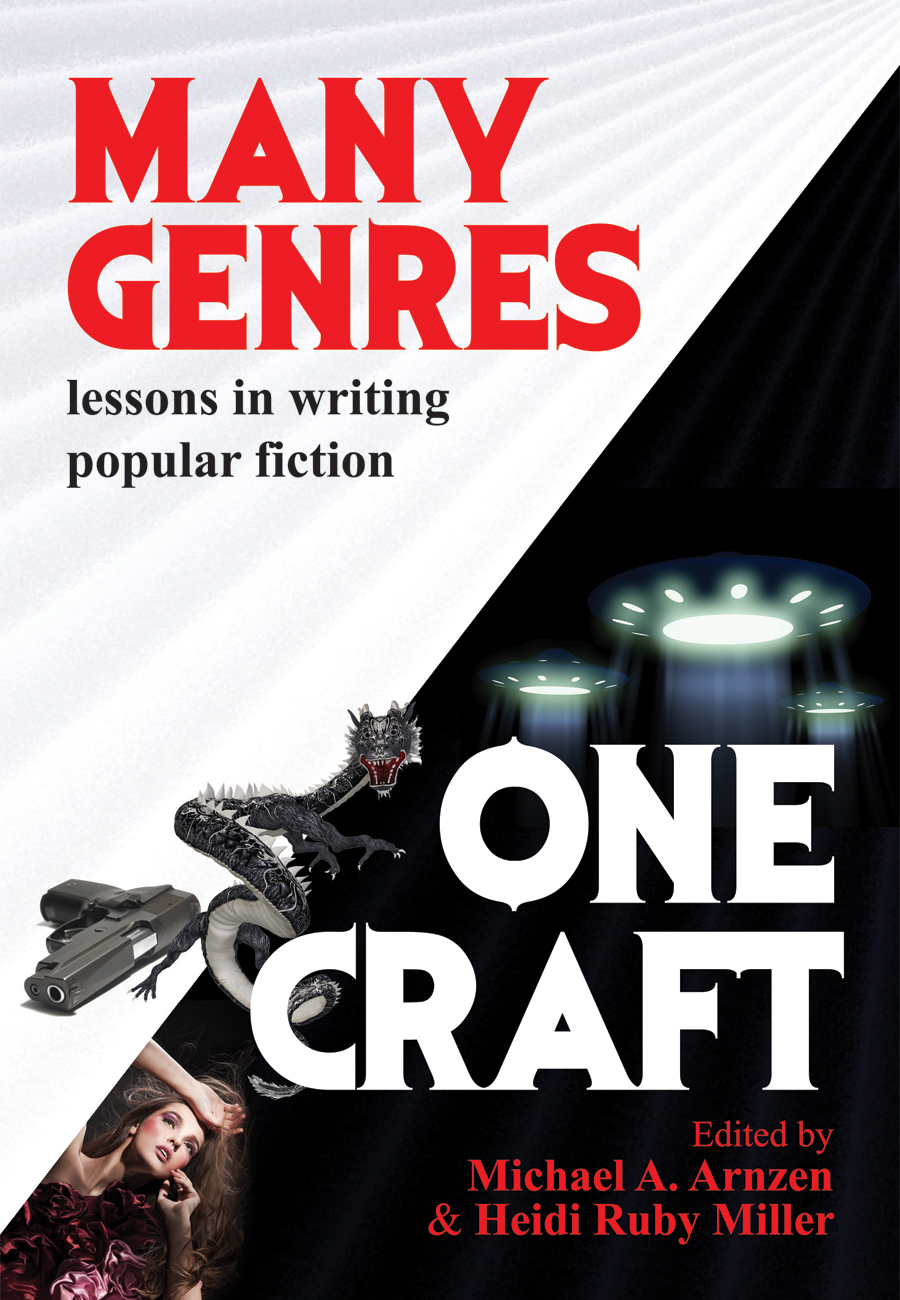Today, we're pleased to have an excerpt from Michael Arnzen's "Genre Unleashed" from Many Genres, One Craft: Lessons in Writing Popular Fiction:
We are lucky to have genres, because they give writers an avenue toward finding an audience -- and they point readers in our direction, as well. But they can be dangerous roads, too, because once we start identifying things by their type, we begin to categorize and label them, separating one kind from another, often based on superficial judgments. If a reader doesn't like a genre, they'll pre-judge your book without even looking at the cover. This feels unfair, so some writers avoid genre altogether, hoping to maximize a potential audience and avoid the constraints of their conventions…avoiding the pigeonholes of genre, but never finding a place to roost, and fading into obscurity. Others make the opposite mistake, getting too hung up on trying to control their fate, and play it safe, follow the "rules" of their genre so closely that their work becomes indistinguishable from any other book on the shelf. Uncertain about how to "fit in," they err on the side of imitation, and produce work too derivate to excite an editor who is looking for a unique sales hook for next year's catalog.
The problem, in a nutshell, is that genres are reductive. They reduce an entire body of literature down to one word in order to "index" it -- but in the process they oversimplify it, too. Because genres are labels, they fool us into thinking that genres are less meaningful, less creative, and less complicated than they really are. This is also why they get a bad rap by the literati, who categorically judge them as lowbrow pap. The real truth -- one which successful genre writers and devoted genre fans only know -- is that genres liberate writers, giving them a focus, relieving them of some burdens, and allowing them to play to their strengths and interests. A genre can unleash your creativity, once you get a clear sense of how it empowers you.
Michael A. Arnzen (gorelets.com) is a college teacher by day and a horror writer by night. He has been educating novelists since 1999 as faculty in the Writing Popular Fiction graduate program at Seton Hill University in Greensburg, PA, where he is currently Chair of the Humanities. Arnzen's energetic workshops on genre fiction writing have been popular at Odyssey, Alpha, World Horror Convention, Context, Pennwriters and the Horror Writers Association's annual Stoker Weekend event. His often funny, always disturbing horror stories have won four Bram Stoker Awards, an International Horror Guild award, and several "Year's Best" accolades.


You can't judge a book by its cover. Some of the best books don't follow the rules of genre...I like books you can't stereotype. Same for films. Nice to meet you on the blogging challenge.
ReplyDeleteYup...genre...I say my finished one is YA others say not...but, I do know for a fact that it's paranormal and humorous. It's difficult to pin a genre lable on it. It really is.
ReplyDeleteI agree, Luana and Shelly! I used to worry I was putting too much romance into my SF and too much SF into the romance. Finally I just decided to write the book the way I would want to read it. I had a lot more fun!
ReplyDeleteI have mixed views on this - I feel the classification is necessary for identification, but there are some really good books I'll never try because they fit a genre I'm not particular to.
ReplyDeleteGreat post! Hopping over from A-Z. Nice to meet you!
Great comments! Thanks folks. I'm with Luana: I seek out books that evade the stereotypes...and I also try to look for subversively playful little numbers on the genre shelves, too, calling all the other books right beside them into question. The article in MANY GENRES goes on to talk about this dichotomy of the "same yet different" in further depth. Hope you'll check it out.
ReplyDeleteCheers, Mike Arnzen, http://www.gorelets.com